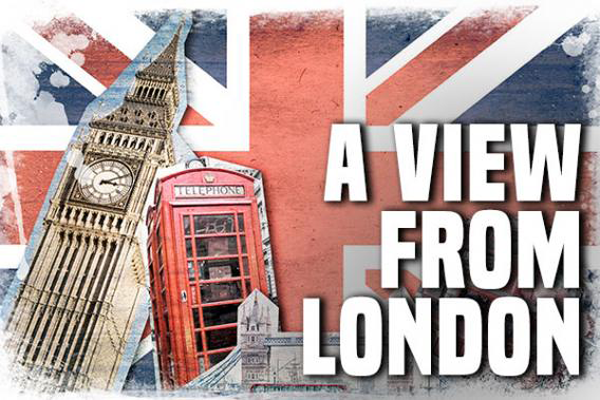
Apple’s (AAPL) tax woes in Europe are not the last clash between Europe and U.S. technology giants.
Another battle is about to begin in the telecommunications sector, where preparations for the rollout of fast mobile internet via 5G networks will pit the continent’s traditional telecom companies against agile internet natives such as Action Alerts PLUS portfolio holding Facebook (FB) , or even against Microsoft (MSFT) .
The European Union’s plans envisage a deployment of 5G technology across the bloc in 2020, with an action plan to be made public soon. The technology is crucial for the Internet of Things, driverless cars, health care (robotic surgery will rely heavily on 5G’s lightning speed data transmission), “smart” factories, more efficient energy distribution and, of course, media and entertainment.
In July this year, the biggest telephony operators in the EU submitted a so-called “5G Manifesto” that was warmly received by the European Commissioner for the Digital Economy and Society, Günther H. Oettinger. The manifesto is signed by the heads of companies such as BT Group (BT) , Vodafone (VOD) , Orange (ORAN) , Deutsche Telekom (DTEGY) , Telecom Italia (TI) , Spain’s Telefonica, and Dutch Royal KPN.
It states that “in order to facilitate the adoption of 5G technologies, the European Commission and Member States must encourage and incentivize cross-sector innovation through adequate policies and support for cross-sector hubs for experiments, trials and large scale pilot programs.”
The signatories want the EU to give grants between €500 million ($562.5 million) and €1.0 billion so that other industries, like car manufacturers and the health industry, can experiment with integrating their services with the new technology.
They also want the EU to create its own 5G venture fund, somewhere north of €1 billion, and use it to take equity stakes in innovative European start-ups developing 5G technologies and applications across verticals.
While this would amount to state aid for local players, such amounts are still peanuts compared with the cash reserves of the U.S. technology giants. Facebook’s most recent balance sheet shows it had more than $5.1 billion in cash and cash equivalents in the quarter that ended on June 30, while Microsoft had more than $6.5 billion in the same period. That’s not counting more than $18 billion in short-term investments for Facebook and more than $106 billion for Microsoft.
The actual danger comes from the request by the traditional telecom operators that the European Commission level the playing field when it comes to certain types of services.
“All players in the digital value chain should operate on a level playing field, with equivalent and proportionate privacy requirements to innovate in data-driven markets. There is no justification for imposing stricter obligations on Electronic Communications providers than on other providers of digital services,” the manifesto says.
What this really means is that companies such as Facebook with its What’s App chat platform or Microsoft with its Skype video and telephony service, as well as other VoIP services providers, could face the same regulatory hurdles as traditional telecommunications.
According to sources quoted by The Wall Street Journal, later this week the European Commission is likely to reveal some proposals that would respond at least partially to the requests made by telecom companies, imposing similar rules for digital communications operators as for traditional telecoms in areas where the business models are similar.
The paper said this would mean things like ensuring that Skype allows European users to make calls to emergency services for free via its service, or ensuring that What’s App’s network security is similar to that of traditional telecom operators.
It is still early days and many of these rules could change, but one thing is for sure: investors should expect increased scrutiny and regulatory hurdles for Silicon Valley giants in Europe. As they cannot afford to ignore a market of 500 million consumers, the U.S. companies are likely to have to spend more on their European operations in the future, in order to comply.






